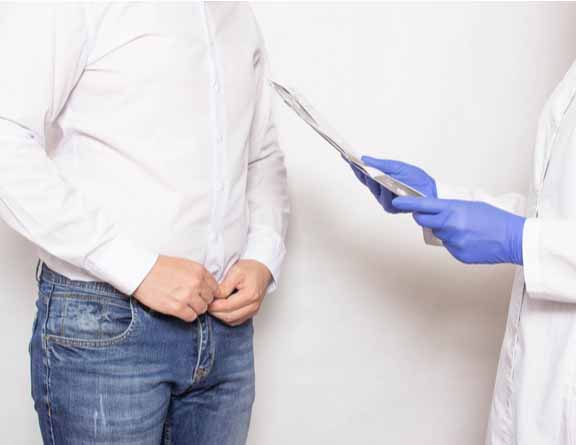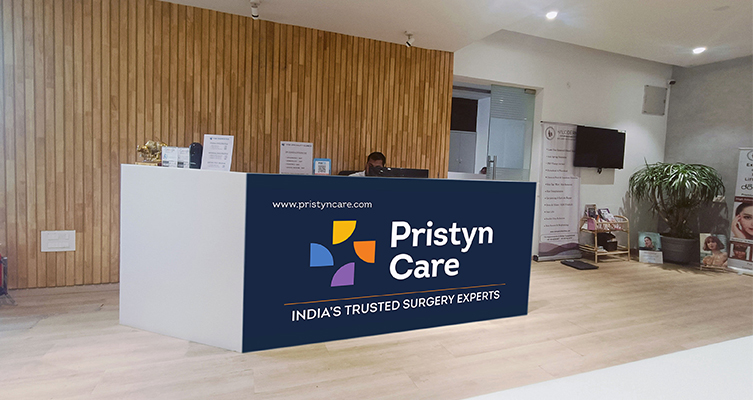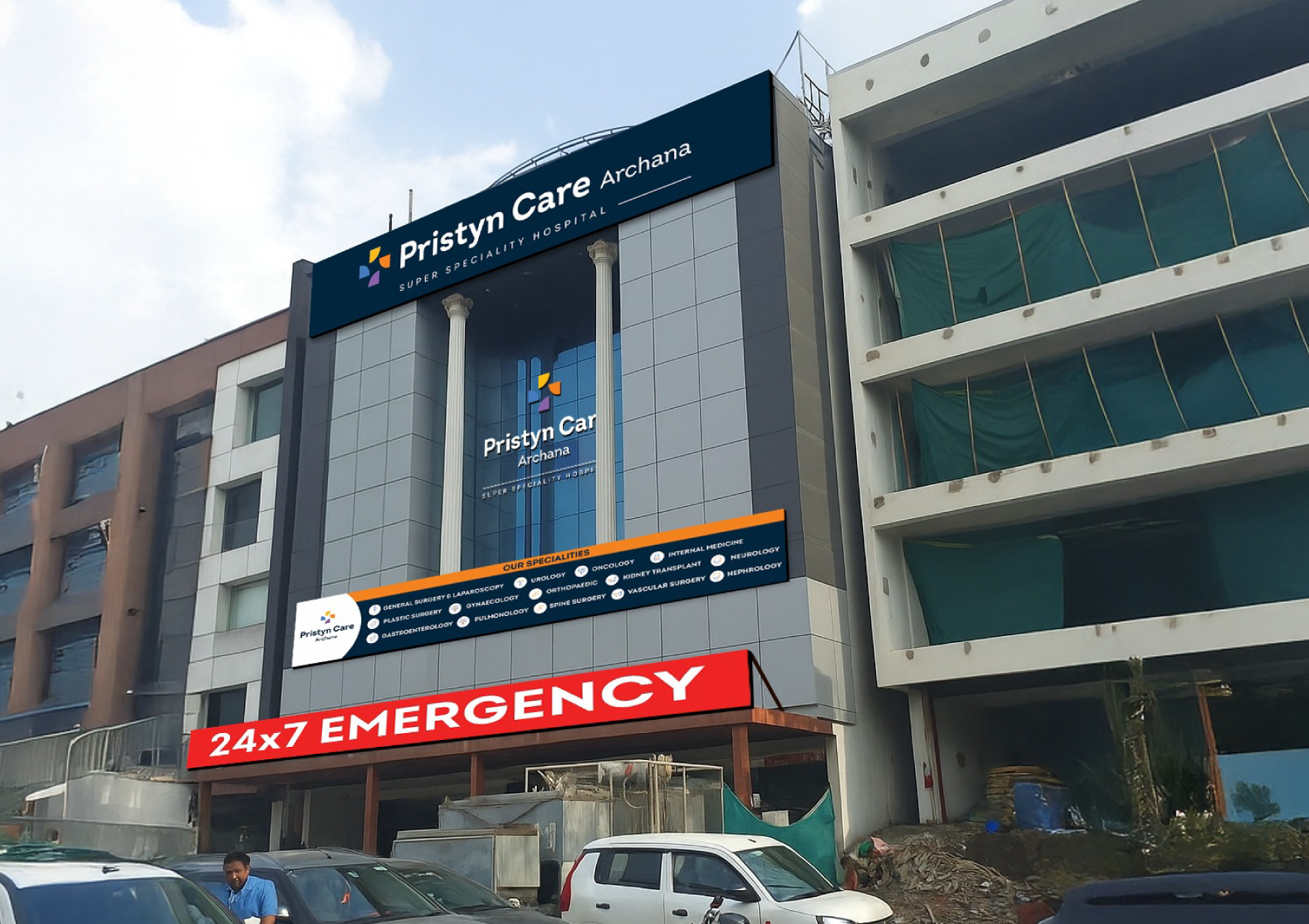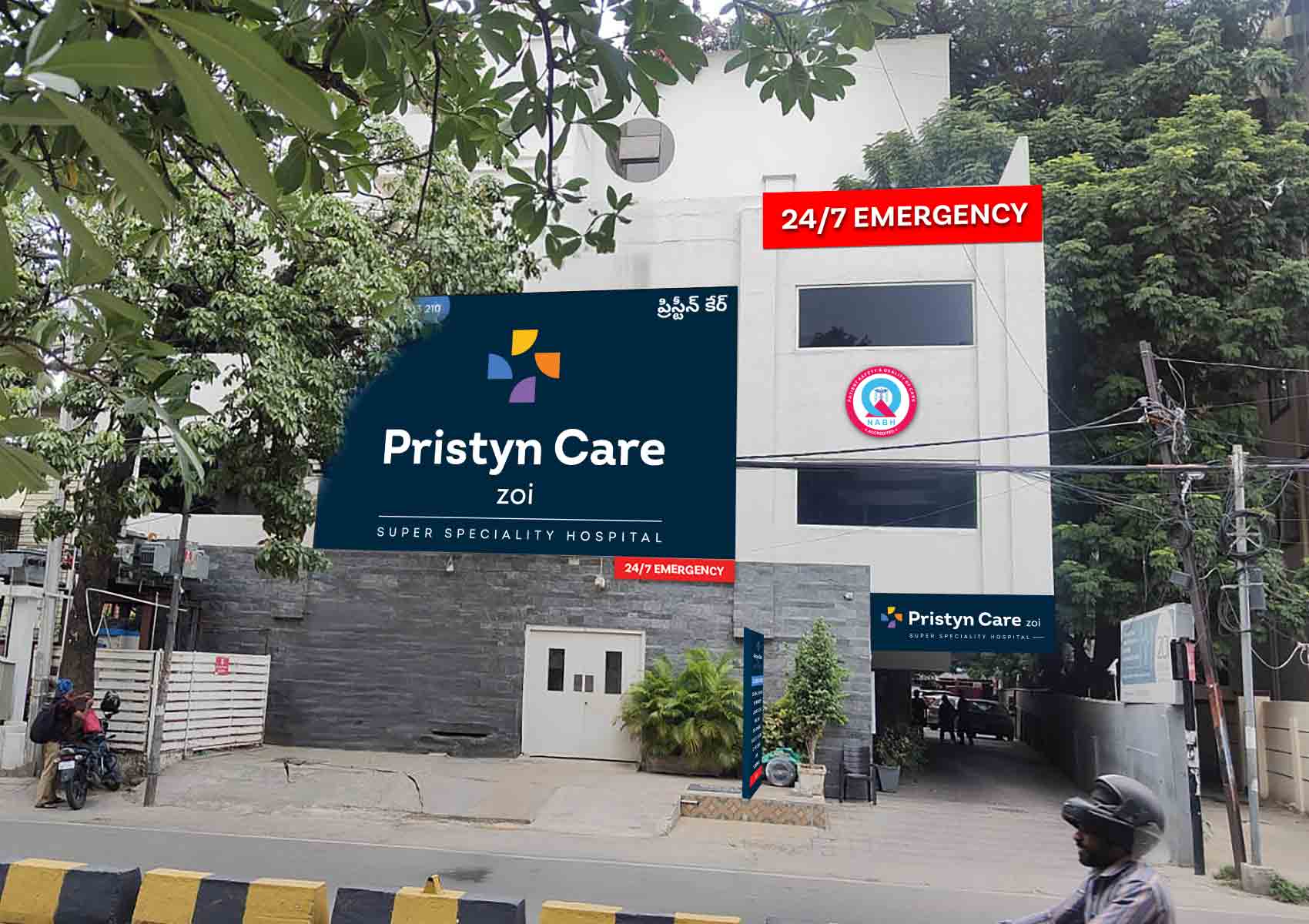
Hyderabad
USFDA-Approved Procedure
Support in Insurance Claim
No-Cost EMI
1-day Hospitalization
Benign Prostatic Hyperplasia, or BPH, is a condition associated with the enlargement of the prostate gland. People with an enlarged prostate find it difficult to empty their bladder properly due to the narrowing of the urethra. This results in the frequent urge to urinate, especially at night. It is estimated that more than 70% of men are likely to have enlarged prostate over the age of 50 years, out of which 25% require surgical procedures.
The condition is referred to as benign suggesting it may not be cancerous. The term ‘prostatic’ is associated with the prostate gland and ‘Hyperplasia’ refers to the enlargement of the gland.The condition is referred to as benign suggesting it may not be cancerous. The term ‘prostatic’ is associated with the prostate gland and ‘Hyperplasia’ refers to the enlargement of the gland.


Enlarged Prostate Treatment in Hyderabad
The diagnosis for an enlarged prostate involves a combination of physical examination and diagnostic tests to confirm BPH. Since heredity is a risk factor for BPH, the doctor will analyze your family history report. The doctor recommends the following tests to rule out the possibility of enlarged prostate due to other conditions. Some of the diagnostic tests include –
In case of moderate or complex cases, the doctor may recommend the following diagnostic tests –
Medicine for Enlarged Prostate – Doctors generally prescribe medications to treat men with mild to moderate symptoms of BPH. These medicines ease the symptoms by calming the muscles in the prostate and bladder. However, there may be some side effects related to corresponding medications depending on the condition and severity of the disease. Some categories of medications prescribed by the doctor for BPH include-
There are several surgical as well as non-surgical methods for BPH treatment which include various medications, dietary changes, and lifestyle modifications. However, non-surgical methods such as medications, home remedies, etc are effective to manage the symptoms of BPH and surgical treatment is the only method to treat enlarged prostate.
Minimally invasive surgeries – These surgical techniques involve minimal invasion that can often be done as outpatient surgery, meaning the patient may not require a hospital stay. Recovery is generally quicker, but it depends on the medical condition of the patient and the surgical expertise of the surgeon. Minimally invasive techniques such as TURP, TUIP, etc., help the patients relieve symptoms quickly and may nullify the need for medications. Minimally invasive procedures are recommended in case of the following situations-
Based on these conditions, there are different techniques to perform minimally invasive procedures-
Laser surgeries – These are advanced surgeries that use high-energy lasers to destroy or remove the tissues around the enlarged prostate. Patients who undergo laser therapy procedures often feel instant relief. Moreover, laser surgeries have a lower risk of side effects than minimally invasive surgeries. Some of the advanced laser techniques for laser BPH procedures are-
You can visit our best Prostate Surgeons in Hyderabad and nearby cities such as Mumbai, Chennai, Pune and Bangalore.

No 1213, 1st Flr, Swamy Ayyappa Society, Mega Hills, Madhapur, Hyderabad, Telangana 500081
Pristyncare%20Clinic.webp)
Annapurna Kalyana Mandapam, Srinagar Nagar, Dilsukhnagar, Besides Bank of Maharashtra, Hyderabad, Telangana 500060



Pristyn Care Archana Hospital is a trusted multi-specialty healthcare institution in Hyderabad, dedicated to delivering compassionate, ethical, and patient-centered medical care. Guided by the vision of building a healthier community, we combine clinical expertise, modern infrastructure, and advanced medical technology to ensure the best outcomes for our patients.
With specialties spanning Orthopaedics, General & Laparoscopic Surgery, Obstetrics & Gynecology, Paediatrics, ENT, Urology, and more, we provide comprehensive treatment for individuals and families at every stage of life.
Our facilities include 24/7 emergency and critical care services, advanced diagnostic labs, and state-of-the-art surgical units, ensuring patients receive safe, effective, and timely care. Every member of our team is committed to delivering treatment with empathy, dignity, and integrity.
At Pristyn Care Archana Hospital, we believe healthcare is not only about treating illness but also about nurturing wellness. From preventive checkups and early screenings to complex surgeries and long-term recovery, we are your partners in building a healthier future.
...Read More



 NABH
NABH
This is where advanced medical care and compassion blend to offer personalized care at every step of your treatment journey. Our experienced team of doctors and supportive medical staff strive to give you affordable, expert care customized for your unique needs and challenges. From diagnosis to recovery, we’re right by your side throughout the process. At Pristyn Care Zoi Hospital, you’re not a patient, you’re part of a community that prioritizes your well-being.
...Read More
Delivering Seamless Surgical Experience in India
Your safety is taken care of by thermal screening, social distancing, sanitized clinics and hospital rooms, sterilized surgical equipment and mandatory PPE kits during surgery.
A dedicated Care Coordinator assists you throughout the surgery journey from insurance paperwork, to free commute from home to hospital & back and admission-discharge process at the hospital.
Our surgeons spend a lot of time with you to diagnose your condition. You are assisted in all pre-surgery medical diagnostics. We offer advanced laser and laparoscopic surgical treatment. Our procedures are USFDA approved.
We offer free follow-up consultations and instructions including dietary tips as well as exercises to every patient to ensure they have a smooth recovery to their daily routines.
The prostate gland is a walnut-sized gland located right below the urinary bladder in men. It surrounds the top portion of the urethra. It is responsible for the formation of enzymes and hormones in the seminal fluid, which are responsible for the proper function and transport of the sperm.
Benign Prostate Hyperplasia, also known as benign prostatic hypertrophy or benign prostatic obstruction, is a benign enlargement of the prostate gland that naturally occurs due to aging in men over 40 years of age. Both BPH and prostate cancer involve prostatomegaly (enlargement of the prostate), but BPH does not spread to other parts of the body.
Prostate cancer is a malignant cancer of the prostate gland. Although both BPH and prostate cancer are prostate gland problems characterised by an enlarged prostate gland, unlike BPH, prostate cancer can metastasize and spread to other parts of the body. While BPH can be treated by removing a small portion of the prostate gland, prostate cancer often needs a complete prostatectomy and chemotherapy for treatment.
Men who fulfil the following criteria are more likely to develop benign prostate hyperplasia:-
Both BPH and prostatitis are common prostate problems in men. BPH is a prostate disease that involves benign enlargement of the prostate gland that occurs as a result of aging in men. On the other hand, prostatitis is an inflammation of the prostate gland due to an infection or traumatic injury. Prostatitis, or prostate infection, is usually treated via antibiotics and other medication, but as the reason for prostate enlargement in BPH is unknown, it can only be treated surgically. While both BPH and prostatitis can occur together, BPH does not lead to prostatitis.
The prostate gland surrounds the upper portion of the urethra. When the prostate gland enlarges, it starts restricting the urethra, which restricts the passage of urine. So men with BPH often have difficulty maintaining a regular urine stream and completely emptying their bladder. Thus, they have higher chances of developing urinary problems such as bladder stones, bladder damage, UTIs, kidney damage, etc.
While deciding the treatment method for BPH patients, the urologist usually considers two factors- their prostate gland size and their symptoms. Sometimes patients with a moderate prostate gland might have worse symptoms as compared to those with a large prostate gland. Therefore, the treatment is usually decided based on the severity of the symptoms.
Although patients can try to manage the early symptoms of Benign Prostatic Hyperplasia by using medicines and lifestyle modifications, they can not decrease the prostate size and, at best, will only slow down the progression of the condition. The only effective and long-lasting treatment for BPH is surgery to reduce the prostate size and relieve the pressure on the urethra.
The cost of the BPH procedure in Hyderabad can range anywhere between Rs. 60,000 to Rs. 1.5 lakhs, depending on certain factors such as the severity of the condition, the technology used, hospitalization fees, the patient’s medical condition, the surgeon’s expertise etc. The cost of Transurethral Resection of the Prostate (TURP) in Hyderabad is around Rs. 60,000 to 1 lakh. The cost of laser procedure (HOLEP) in Hyderabad is around Rs. 1- 1.5 lakhs.
Prostate surgery is performed under the influence of general or local anesthesia, depending on the patient’s symptoms. The surgery is completely minimal pain. The patient might feel a mild pain or discomfort post-surgery, which can be easily managed with pain medication.
Although prostate problems don’t cause erection problems themselves, they can lead to erectile dysfunction in other ways. Over 50% of BPH patients have some degree of erectile dysfunction. This is because certain BPH medicines can reduce sexual drive. BPH can also cause pain after ejaculation, which can affect the patient’s sexual drive psychologically.
Transurethral Resection of the Prostate (TURP) Syndrome is a very rare but potentially life-threatening side effect of the TURP procedure for BPH. This TURP complication occurs if there is excessive absorption of the irrigation fluids into the prostatic venous sinuses during the procedure.
Most men experience sexual dysfunction right after the surgery, but it usually resolves itself as the patient recovers. In rare cases, the patient might experience long-term erectile dysfunction if nerves are damaged during the surgery. It is much more common during prostatectomy than minimally invasive procedures like TURP and HOLEP.
Although BPH is not associated with cancer, if left untreated, it can cause some serious urinary problems such as:
Some simple tips to help relieve the symptoms of mild BPH such as prostate pain in the early stages are:
Certain medications can accelerate prostate growth or worsen the effects of BPH in other ways. Hence, you should be careful about their consumption and consult your urologist to ensure that they are not harming you. Medicines you should avoid during BPH include:
Both TURP (Transurethral resection of the prostate) and HOLEP (Holmium Laser Enucleation of the Prostate) are minimally invasive surgical procedures for the treatment of benign prostate hyperplasia. They are normally very safe procedures, but in rare cases, they may be attached to certain complications.
Potential side effects of TURP surgery are:
Potential side effects of HOLEP are:
Pristyn Care is the leading provider of BPH treatment in Hyderabad. It is associated with the best urology hospitals in Hyderabad and has the best urologists on its panel. Facilities provided by Pristyn Care for all BPH patients are:
To avail expert and affordable treatment for benign prostate hyperplasia, contact Pristyn Care today. Do not wait for the condition to progress.
You can book an appointment with Pristyn Care urologists by either calling the number on top of the page or filling in the “Book an Appointment” form. Our care coordinators will immediately get in touch with you to book your appointment. You can also book an appointment at Pristyn Care through our dedicated patient care app.
UPENDRA TUMMALA, 47 Yrs
Recommends
Dr. Vinayak provided a comprehensive explanation of my diagnosis and the available treatment options. He patiently addressed all my questions and ensured I felt at ease throughout the entire process. Additionally, Mr. Suresh was immensely helpful in arranging my consultation and even followed up to monitor my progress. I wholeheartedly recommend their services.
Utkarsh Lakhotia
Recommends
Dealing with prostate enlargement was concerning, but Pristyn Care's urologist provided excellent care. The prescribed treatment was effective, and I'm experiencing relief from urinary issues. Pristyn Care's expertise in managing prostate conditions is commendable.
.svg)
.svg)
.svg)